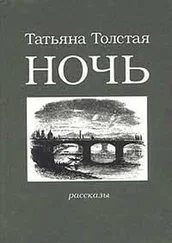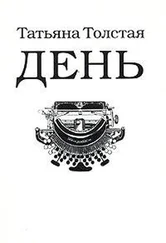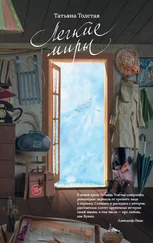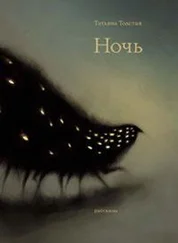His brother is also a target. His sister is married and living in a neighboring village; they wouldn’t kill her, that’s bad form. By killing a woman, you lower yourself, losing your place at the top of the social hierarchy. Same for old people. The best is to kill a killer, but, failing that, killing a young man before he’s had a chance to father any future avengers.
And so Yorgos and his brother look out into the distance, scanning the mountaintops with their pale Mycenaean eyes.
“We never tell the truth about where we’re going and when. If we need to leave at noon on Monday, we always say that we’re leaving at two p.m. on Wednesday. We never know who’s listening. Never know who might come. Never know how long we’ll live. The world is full of evil.”
All Cretans are liars, it’s said. Maybe that’s why? He got up and left: too much work to do. Can’t leave him a tip; he’s the owner, not simply a waiter. The Germans don’t know, they tip. But are Sauerkrauts people?
Blood feuds are studied from every angle as a particular type of ancient institution that supports the clan structure of society and as a post-traumatic reaction—this leaves a wide berth for all things Freudian. There is something called “afterwardsness”; those who are interested can delve further. Wherever the concept of honor exists, so does the concept of insult. Where there is insult, there is revenge, spilled blood and the avenging of said honor. It’s not only sheep that can trigger a conflict—it could be a woman, or disrespectful speech, or a disrespectful glance, even. “Sing, Goddess, sing of the rage of Achilles, son of Peleus.” Rage—өυμός—is a typically Greek quality. It’s as if it is stored somewhere deep inside, kept fresh forever.
An example: A man gets killed and is survived by his wife and baby. The wife hides his bloodied clothes in a dower chest; throughout his childhood the boy keeps asking: Where is my father? “You’ll know when you grow up.” When he finally does, his mother hands him clothes caked with blood. He puts them on and goes out looking for vengeance.
Or another: In 1987, a shepherd killed a hospital orderly he encountered at random. They were chatting, and the orderly, for some reason, shared that a long time ago, his distant relative killed a man with this or that last name. The shepherd realized that the victim in question was his uncle. The orderly’s last name was the same as that of his uncle’s killer. That meant they were related, and that meant the blood feud applied. “Suddenly, blood rushed to my head, my brain was cloudy, I just knew I had to kill him.” Astonishingly, this shepherd was born twenty-two years after his uncle was murdered.
—
I went to see Yorgos this week, too. He’s still alive. His face puffy, his eyes paler than ever, habitually scanning the balconies and rooftops. He looked at me with indifference.
“Yorgos,” I said. “You don’t recognize me?”
“I do.”
He set my food in front of me and walked away. Not being dangerous, I was of no interest to him whatsoever.
§
In Greek villages you always find: white walls, blue doors, and a grim-faced old lady sitting on a rickety stool, looking out, possibly at you or possibly into the obscure depths of a life lived. She’ll be wearing a black dress, or a black top and skirt—hard to tell; her head will be covered in a black scarf, her wizened black-stockinged legs set wide apart for stability. She will also be leaning on something: a walking stick or a shepherd’s staff.
That must be the tradition. How many centuries have they been sitting like that? And at what age are they expected to exchange their colorful clothes for full-body black, forever abandoning femininity and full living?
At first I thought that this was prolonged widowhood, transformed into death during life. But no, these grannies often coexist with layabout husbands who never sit by the door but spend their days hanging out at the café in the town square with other slacker grandpas. Pale azure short-sleeved shirts, beige trousers (washed and ironed by the grannies in black), thick heads of hair—old Greeks rarely go bald. Some even proudly sport fancy mustaches. Worry beads—hands need to keep busy somehow. Cigarettes and tiny cups of very sweet coffee are de rigueur.
The grandpas in beige congregate at café tables in the shade of a tree—there is always a tree in a town square—where they discuss local, as well as world, politics. With lively curiosity they observe people getting off buses—at every village a bus stops twice a day, dropping off new, interesting, bewildered foreigners and their women. A few of the foreigners ask for directions, and the grandpas oblige with dignity, slowly gesturing with their hand: Go this way, then that way, and then turn there. They follow the clueless tourists with a stern gaze, and then it’s back to world political machinations and ogling women.
The ladies in black don’t discuss anything, they simply sit there. What’s to discuss, right? Gave birth, cooked, did laundry, waited, loved, cried, condemned, forgave, didn’t forgive, hated, harvested olives from a black mesh laid under the trees, bade farewell, buried, mourned, and then again cooked, washed dishes, and returned them to the shelf.
What’s to discuss?
1. The Triad of Official Nationality—a doctrine proposed by Sergey Uvarov, Russia’s minister of education from 1834 to 1849—continues to amaze me with its ingenuity.
“Orthodoxy, Autocracy, Nationality.” The wording is for brevity and for pleasing the tsar, but also to discourage the Illuminati, the Carbonari, and the Jacobins, with their “Liberté, Egalité, Fraternité” —those same who, by the basketful, used to collect their brethren’s heads from under the guillotine, fi donc!
The Uvarov Triad, the Holy Life-Giving Trinity, assembles into a single movable structure three types of power, three kinds of force: the celestial (religion), the earthly (the tsar), and the chthonic (the lower world), whose roots spread out and creep down to God knows where, feeding off God knows what subterranean rivers, maybe even blooming with dead-white flowers, entangling themselves in underground caves impossibly hard to reach.
It is essentially the World Tree—Arbor Mundi—the heavens, the terrestrial world, and the underworld. You can only surmise what’s up top, you can observe what is in the middle, and the bottom is an impenetrable and incomprehensible pit.
By comparison, “Liberté, Egalité, Fraternité” is nothing but gibberish smeared over a flat surface. It’s not the Russian way.
Each element of the Triad, however, is a blooming garden of mystery.
First, let’s take Orthodoxy. But what “Orthodoxy,” pray tell? It’s mostly a matter of wishful thinking, a reminder that one mustn’t forget, but must pay attention. The populace has a tendency to regress, one way or the other, into the warm, damp gloom of paganism, with its obscure flickering and alarmed voices, where something hoots and hollers behind your shoulder, beckons and promises in the distance.
Jesus stubbornly grumbles and doesn’t feel like performing miracles. Doesn’t feel like it! That’s just the way He is. Here is Lazarus for you—and that’s enough. A blind man, fine. But people need miracles, they long for astonishing, lively, festive things. Abracadabra and— bam! Open the door—and there! Look out the window—and wow! They need Santa, on a regular basis. With presents. Otherwise, O heavenly creatures, life is empty and cold.
That Russian Orthodoxy and paganism go well together is obvious, plain to see in life’s most important matters. The moment the bride and groom step away from the altar, they are showered with grain to ensure fertility, so that their progeny are as plentiful as the harvest. In fat years they shower them with wheat. And in lean years—and I remember the lean 1980s as if they were yesterday—there were two women standing around an empty Soviet grocery store, without so much as a bit of millet to be had, discussing whether they could use corn grits instead.
Читать дальше






